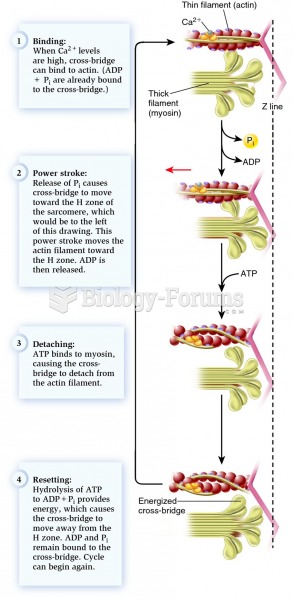This topic contains a solution. Click here to go to the answer
|
|
|
Did you know?
It is important to read food labels and choose foods with low cholesterol and saturated trans fat. You should limit saturated fat to no higher than 6% of daily calories.
Did you know?
You should not take more than 1,000 mg of vitamin E per day. Doses above this amount increase the risk of bleeding problems that can lead to a stroke.
Did you know?
It is widely believed that giving a daily oral dose of aspirin to heart attack patients improves their chances of survival because the aspirin blocks the formation of new blood clots.
Did you know?
Human kidneys will clean about 1 million gallons of blood in an average lifetime.
Did you know?
There are approximately 3 million unintended pregnancies in the United States each year.







